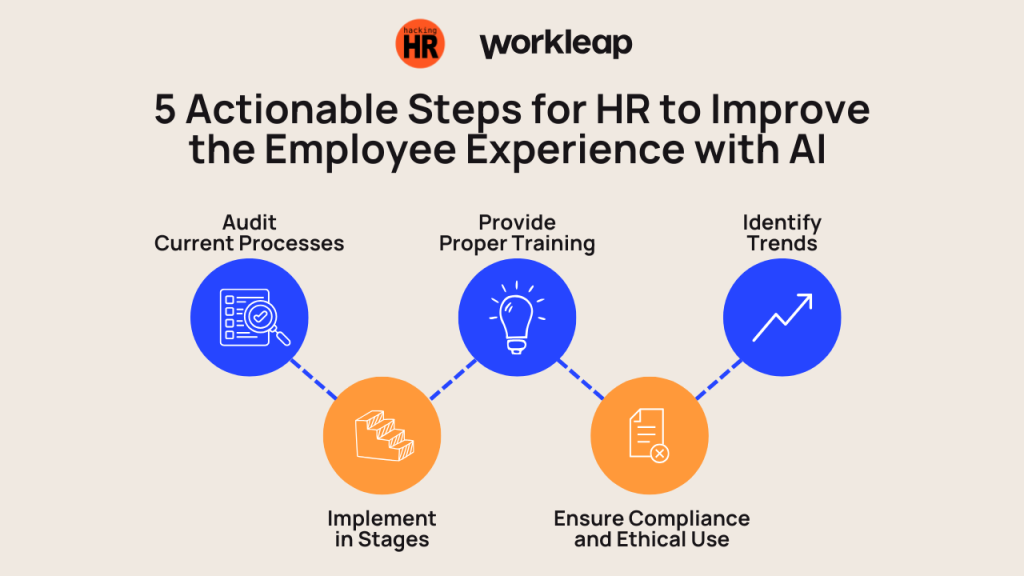Artificial intelligence is often discussed in the context of efficiency, automation, and customer engagement, but it also has the potential to transform the employee experience. When implemented thoughtfully, AI can reduce repetitive tasks, provide better insights for decision-making, and foster a more engaging, productive, and satisfying work environment. Ensuring that AI improves employees’ experience requires a balance between automation, collaboration, and empowerment, along with clear communication and training to build trust and confidence in new systems.
Reducing Repetitive Work and Increasing Focus
One of the most immediate benefits AI can provide to employees is the reduction of mundane or repetitive tasks. Administrative duties, data entry, scheduling, and reporting can consume significant portions of the workday, leaving employees less time for creative problem-solving, strategic thinking, and meaningful interaction with colleagues or clients. AI-powered automation tools can handle these tasks efficiently, freeing employees to focus on work that requires judgment, creativity, and human expertise.
This shift can have a profound effect on engagement and job satisfaction. When employees spend more time on tasks that align with their skills and interests, productivity increases, and workplace morale improves. Moreover, AI can support collaborative work by streamlining processes, ensuring that teams spend less time coordinating logistics and more time driving meaningful outcomes. Companies that implement AI as a complement to human work, rather than a replacement, foster a sense of empowerment and value among employees.
Providing Insight and Decision Support
AI also enhances the employee experience by providing actionable insights that support better decision-making. Machine learning algorithms can analyze vast amounts of operational data, identify patterns, and generate predictions that inform individual and team actions. For example, AI can help project managers forecast resource needs, support HR teams in predicting workforce trends, or assist analysts in identifying market opportunities more quickly.
By equipping employees with relevant insights, AI reduces uncertainty and supports confidence in decision-making. Access to these insights enables employees to take proactive action, make data-driven recommendations, and feel more competent in their roles. Organizations that integrate AI in a transparent and accessible way, providing context and explanation for its outputs, ensure employees see AI as a helpful partner rather than a black box that replaces judgment.
Personalizing Professional Development
Another area where AI can improve the workplace experience is learning and development. AI-driven platforms can assess individual performance, identify skill gaps, and recommend personalized training programs. This level of customization helps employees advance in their careers more efficiently, while fostering a culture of continuous improvement. Personalized development opportunities also contribute to retention, as employees feel supported in achieving professional goals aligned with both personal ambitions and organizational objectives.
Supporting Well-Being and Work-Life Balance
AI can also improve the employee experience by promoting well-being and balance. Intelligent scheduling tools, predictive workload management, and automated notifications for deadlines or resource availability can prevent burnout and overwork. By anticipating demands and distributing tasks efficiently, AI reduces stress and creates a more manageable work environment. Additionally, sentiment analysis and AI-powered feedback systems can help leadership identify patterns of employee dissatisfaction or disengagement early, allowing for timely interventions.
The Role of Marketing in Employee Engagement
Marketing plays an important role in fostering internal engagement, even as AI tools are introduced. Internal communications, branding, and employee-focused campaigns can help teams understand the purpose, benefits, and practical applications of AI in their roles. Content marketing strategies can be adapted for internal audiences, providing educational resources and success stories that demonstrate how AI improves workflow, productivity, and professional growth. AI SEO services can assist in optimizing internal knowledge hubs and resources so employees can quickly access the information and guidance they need to leverage new tools effectively.
Implementing AI Responsibly
To ensure AI enhances rather than diminishes the employee experience, organizations must prioritize transparency, training, and ethical application. Clear communication about how AI tools function, the data they use, and the decisions they inform is essential. Employees should receive training that builds competence and confidence in AI applications. Policies must be established to protect privacy, ensure fairness, and prevent misuse of AI outputs.
Ultimately, AI has the potential to elevate the employee experience by reducing repetitive tasks, providing actionable insights, supporting professional growth, and promoting well-being. When implemented thoughtfully, with a focus on collaboration, transparency, and empowerment, AI becomes a strategic partner in creating a more engaged, productive, and satisfied workforce, ensuring that technology benefits both the company and the people who drive its success.


